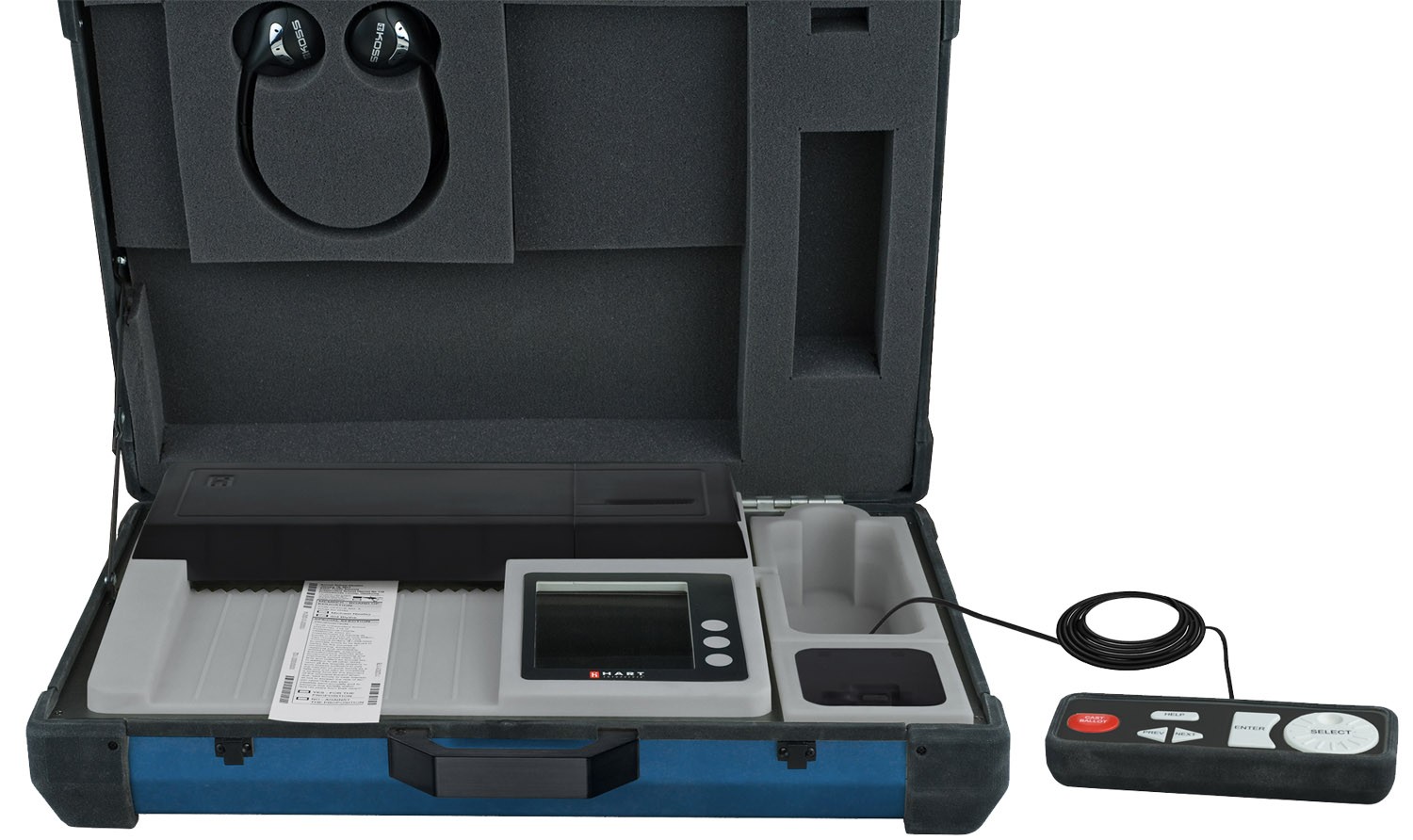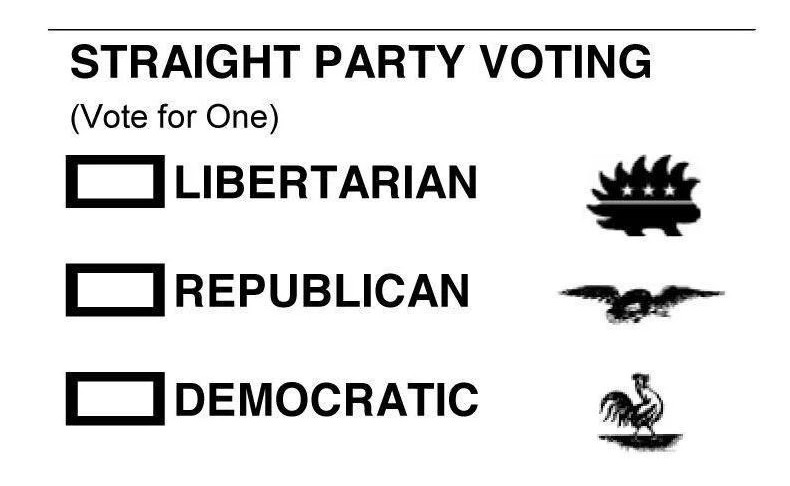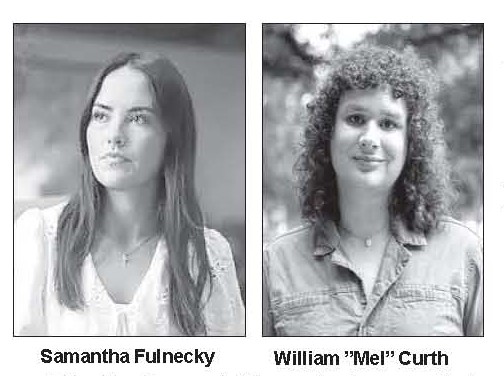2025 Oklahoma Conservative Index
After taking suggestions from conservative leaders, proposed bills were reviewed by a joint committee composed of the Oklahoma Constitution newspaper staff and members of the Oklahoma Conservative Political Action Committee (OCPAC). The ten votes for this year’s ratings were selected and the legislators were rated based on their votes on these bills. The bills for the 2025 Oklahoma Conservative Index include cutting and ending state income taxes; reforming the initiative petition process; protecting property with firearms; expanding film productions subsidies; ending DEI in state Higher Education institutions; banning adult performances in front of minors; protecting the rights of adoptive and foster parents; the closing of businesses in a pandemic; ensuring safe roads and trucking; and placing municipal liens on property.
RATING CALCULATION
To determine this year’s rating, 10 points were earned for each conservative vote (designated by a C), and no points were awarded for a liberal vote (indicated by an L). Each failure to vote (recorded as a Z) provides only three points. When the rating system was created in 1979, it was decided that there should be a difference between voting liberal, and missing a vote. So, a legislator absent for all the votes could only score a meager 30 percent.
Thus, a legislator voting conservative on eight votes, liberal on one, and failing to vote on another, would receive eighty plus three, or an 83% conservative rating.
This year’s conservative rating was averaged with the legislator’s scores from their previous years of service to obtain the Cumulative Average score. As a result of term limits, no legislator will have a cumulative score based on a period longer than twelve years. By examining this year’s score in relation to the Cumulative Average, the voting pattern of a particular legislator can be determined. While most score nearly the same, year after year, others trend upward or downward from their average. If your legislator is trending toward conservatism, please offer your encouragement and support. If your legislator is exhibiting a leftward trend, it is time to express your disappointment and suggest the need for a replacement if the trend is not reversed.
The average score this year was 65% in the House and 68% in the Senate. The Top Conservative and Top Liberal legislators were selected based upon this year’s scores. Making the Top Conservatives list were the 79 legislators who scored 80 percent or higher. On the Top Liberals list were the 26 lawmakers scoring 20 percent or lower.
TOP CONSERVATIVES
Twelve legislators scored a perfect 100% conservative rating this year. Five members of the Senate had perfect scores: Dusty Deevers of Elgin, Shane Jett of Shawnee, Julie McIntosh of Porter, Kendal Sacchieri of Blanchard, and Lisa Standridge of Norman. The seven members of the House with a perfect score were: Denise Crosswhite Hader of Yukon, Tom Gann of Inola, Molly Jenkins of Coyle, Cody Maynard of Durant, Jim Olsen of Roland, Jim Shaw of Chandler, and Jay Steagall of Yukon.
Three legislators, one in the Senate and two in the House scored 93 percent: Senator Johathan Wingard of Ada, Rep. Rick West of Heavener, and Rep. Danny Williams of Seminole.
Fourteen legislators, three in the Senate and eleven in the House, scored 90 percent. The three senators who scored 90% were: Micheal Bergstrom of Big Cabin, Warren Hamilton of McCurtain, and Jack Stewart of Yukon. The eleven members of the House who scored 90% were: Steve Bashore of Miami, Rusty Cornwell of Vinita, Rob Hall of Tulsa, Neil Hays of Checotah, Derrick Hildebrant of Catoosa, Gerrid Kendrix of Altus, Chris Sneed of Fort Gibson, Tim Turner of Kinta, Kevin West of Moore, Max Wolfley of Oklahoma City, and Gabe Woolley of Broken Arrow.
There were 50 legislators who scored in the 80s and also made the Top Conservatives list. Those include 19 senators and 31 representatives. Please refer to the Conservative Index for those names.
TOP LIBERALS
Fourteen legislators, six senators and eight representatives, scored zero percent conservative this year. The senators include Mary Boren of Norman, Regina Goodwin of Tulsa, Carri Hicks of Oklahoma City, Senate Minority (Democrat) Leader Julia Kirt of Oklahoma City, Mark Mann of Oklahoma City, and Nikki Nice of Oklahoma City. Representatives scoring zero include Jared Deck of Norman, Andy Fugate of Oklahoma City, House Minority (Democrat) Leader Cyndi Munson of Oklahoma City, Ellen Pogemiller of Oklahoma City, Trish Ranson of Stillwater, Suzanne Schreiber of Tulsa, Ron Stewart of Tulsa, and John Waldron of Tulsa who was recently elected as the chair of the Oklahoma Democratic Party.
Four legislators scored 3%, including Sen. Michael Brooks of Oklahoma City, and Representatives Arturo Alonso-Sandoval of Oklahoma City, Forrest Bennett of Oklahoma City, and Michelle McCane of Tulsa. Representative Ellyn Hefner of Oklahoma City scored 6 percent. Representatives Annie Menz of Norman and Ajay Pittman of Oklahoma City scored 9 percent. Representatives Meloyde Blancett of Tulsa, Melissa Provenzano of Tulsa, and Jacob Rosecrants of Norman scored 10 percent. Representative Mickey Dollens of Oklahoma City scored 12 percent. Senator Jo Anna Dossett of Tulsa scored 20 percent.
A description of each of the bills used for this year’s ratings is found below. A list of all the legislators with their vote on each of the ten bills, their score for this year, and their Cumulative Average, can be found by opening the PDF files below. Please note that Sen. Bryan Logan won a Special Election and was not rated since some votes were before his election. Also, there were three House seats vacant for most or all of the legislative session. The ratings for previous years are also available below.
Bills used for 2025 Oklahoma Conservative Index
(1) State Income Tax Reduction/End
House Bill 2764 by Rep. Trey Caldwell (R-Faxon) and Sen. Chuck Hall (R-Perry) reduces the state income tax rate by 0.25 percent and establishes a path to eventual elimination of the tax. It cuts Oklahoma’s top income-tax rate from 4.75 percent to 4.5 and puts the income tax on a gradual path to zero. The bill also eliminates several tax brackets that apply to very low levels of income. The plan is expected to reduce Oklahomans’ tax payments by a combined $340.5 million annually. It passed the House 74-19 on May 20 and the Senate 34-11 on May 22. It was approved by the Governor on May 28, 2025. The YES votes in support of the bill is the Conservative vote.
(2) Initiative Petition Process Reform
Senate Bill 1027, by Sen. David Bullard (R-Durant) and House Speaker Kyle Hilbert (R-Bristow) makes reforms to the initiative petition process. The bill requires that initiative petitions gather signatures from a larger geographic swath of Oklahoma, although successful petitions could still visit far less than half the state. The number of signatures from any given county is capped at a set percentage of the number of votes cast in that county in the last general election for Governor. The effect of this reform is that signatures must come from at least 18 of Oklahoma’s 77 counties. It also requires paid signature gatherers to disclose their financial backers and mandates that only registered Oklahoma voters are eligible to gather signatures. It also will simplify the language of petition summaries, or gists, and requires that these summaries explicitly state whether a petition will have a fiscal impact. It also requires that those who sign a petition must first read the full ballot title for the proposed measure.
“These changes are long overdue to protect Oklahoma’s laws from being hijacked by out-of-state special interest groups pushing an agenda that goes against our local values,” Bullard said. “These guardrails will bring greater transparency to the initiative petition process and give more Oklahomans, not just the urban elites in Oklahoma City and Tulsa, a say in what questions qualify for the ballot. It’s time to ensure that rural Oklahomans have a voice in this process and that our laws reflect the will of the people, not the wealthy outside influences trying to buy their way onto the ballot.” The bill gained final passage in the House 69-23 on May 7 and the Senate 39-7 on May 21. It was approved by the Governor on May 23, 2025. The YES votes in support of the bill is the Conservative vote.
(3) Protect Property with Firearms
House Bill 2818, by Rep. Jay Steagall (R-Yukon) and Sen. Darrell Weaver (R-Moore) clarifies the scope of and modifies penalties for certain crimes related to firearms. The measure provides for the justified defensive display of a firearm or other deadly weapon. It provides that the crime of unlawful pointing of a firearm does not apply to a person acting in self-defense or to home or business owners defending their private property. The measure also removes the administrative fine assessed against persons for unlawfully pointing a firearm for those who hold a concealed carry license. The bill passed the House 73-16 on March 25 and the Senate 39-7 on May 8. It was approved by the governor on May 14, 2025. The YES votes in support of the bill is the Conservative vote.
(4) Expand Film Production Subsidies
House Bill 2374 by Rep. Brian Hill (R-Mustang) and Sen. Kristen Thompson (R-Edmond) expands the Filmed in Oklahoma Act of 2021 by adding animation, commercials, documentaries, feature films, game shows, pilots, reality television, scripted television and talk shows to the definition of film and thereby making them eligible for rebates of a percentage of their production costs. Projects approved for the program may receive a rebate of 20-38% of their costs, depending on which percentage uplift opportunities for which the project qualifies. Oklahoma is currently spending up to $30 million annually on the program. The House passed the bill 80-11 on March 25 and the Senate 33-12 on May 6. Governor Stitt vetoed the measure on May 13, 2025. In his veto message Governor Stitt said: “The intent of the Filmed in Oklahoma Act was to attract more film-making efforts to our state. Any effort to water down the intent of the original bill and allow Oklahoma taxpayer funds to flow out of our state would be irresponsible.” The Legislature overrode the veto on May 29, voting 76-13 in the House and the 36-9 in the Senate. The NO votes, against overriding the governor’s veto, is the Conservative vote.
(5) End Higher Education DEI
Senate Bill 796, by Sen. Adam Pugh (R-Edmond) and by Denise Crosswhite Hader (R-Yukon), codifies an existing Executive Order by Governor Stitt to ensure Oklahoma’s higher education institutions focus on academic excellence and equal opportunity for all students. The bill prohibits institutions within the Oklahoma State System of Higher Education from using state funds, property or resources to support Diversity, Equity and Inclusion (DEI) positions, programs or activities. The legislation also bars institutions from mandating participation in education or training that grants preference based on race, color, sex, ethnicity or national origin. Additionally, the measure prohibits the requirement of loyalty oaths, ideological statements, DEI declarations in hiring, or the disclosure of pronouns. “Our higher education institutions should focus on providing quality education and workforce development opportunities rather than engaging in politically driven initiatives,” Sen. Pugh said. The bill passed the Senate 39-8 on March 27 and the House 77-18 on May 6. It was approved by the governor on May 10, 2025. The YES votes in support of the bill is the Conservative vote.
(6) Ban Adult Performances for Minors
House Bill 1217 by Rep. Kevin West (R-Moore) and Sen. David Bullard (R-Durant) makes it unlawful for any political subdivision of this state to allow, permit, organize, or authorize the viewing of an adult performance which contains obscene material, on public property or in a public place where a minor, as part of the general public, will be exposed to view such adult performance. It passed the House 79-17 on March 25 and the Senate 39-8 on May 1. It was approved by the governor on May 9, 2025. The YES votes in support of the bill is the Conservative vote.
(7) Adoptive and Foster Parent Rights
Senate Bill 658 by Sen. Julie Daniels (R-Bartlesville) and Rep. Denise Crosswhite Hader (R-Yukon) prevents the Department of Human Services (DHS) from requiring adoptive or foster parents to affirm non-biological, self-declared gender identity declarations by those placed in their care. Specifically, the new section of law says that the DHS shall not: “Deny a current or prospective adoptive or foster parent any authorization necessary to be eligible to adopt or foster based, in whole or in part, upon the parent’s sincerely held religious or moral beliefs, or intent to guide, instruct, or raise a child consistent with those beliefs, regarding sexual orientation or gender identity.” It ensures that eligible adoptive or foster parents aren’t excluded from consideration based solely on their religious or moral beliefs regarding sexual identity or gender orientation. It passed the Senate 38-7 on February 26 and the House 68-19 on May 6. It was approved by the Governor on May 10, 2025. The YES votes in support of the bill is the Conservative vote.
(8) Prohibit Closing of Businesses
Senate Bill 672 by Sen. Julie McIntosh (R-Porter) and Rep. Kevin West (R-Moore) prohibits the governor from closing any business during a pandemic without documented scientific evidence that the nature of the business actually contributes to the spread of the disease. The governor would still have the ability to close businesses during a pandemic to protect public health if there is scientific evidence that a particular business is a contributor to the spread of the disease. The governor would have to give notice and the opportunity for a hearing for any business determined to be nonessential or determined to be detrimental to public health. This would give the business a course of action to plead their case and possibly stay open. It passed the Senate 38-8 on March 26 and the House 74-15 on April 21. It was approved by the Governor on April 23, 2025. The YES votes in support of the bill is the Conservative vote.
(9) Secure Roads and Safe Trucking
Senate Bill 20 by Sen. Kendal Sacchieri (R-Blanchard) and Rep. Jonathan Wilk (R-Goldsby) creates the Oklahoma Secure Roads and Safe Trucking Act of 2025. The measure requires any person holding a non-domiciled commercial driver license or non-domiciled commercial learner’s permit to also possess a valid work visa and provide proof of citizenship to validate his or her identity while operating a motor vehicle. Such a person shall present his or her birth certificate, naturalization certificate, or passport. It also mandates that commercial vehicle operators demonstrate sufficient proficiency in the English language to converse with the public, understand traffic signs, respond to official inquiries, and complete necessary reports. The measure establishes a $3,000.00 fine for failing to comply with this requirement. Operators who fail to comply shall also be prohibited from operating a commercial motor vehicle within this state until such a time that the driver is able to meet the identification requirements. The bill directly aligns with President Trump’s Executive Order signed earlier this year, which reinforces state authority to enforce immigration and transportation laws as part of a broader crackdown on illegal labor and unvetted foreign workers. It passed the Senate 36-10 and the House 71-13 on May 22. It was approved by the Governor on May 27, 2025. The YES votes in support of the bill is the Conservative vote.
(10) Municipal Liens on Property
House Bill 2147 by Rep. Mike Lay (R-Jenks) and Sen. Brenda Stanley (R-Midwest City) creates the Municipal Code Lien Enforcement Act which allows any fees, penalties, or abatement costs imposed against a property for violations of a municipality’s housing and building codes to be enforced as a lien if they equal or exceed $1,500. The measure provides that a municipal code lien is superior to all other liens except those for taxes. It passed the Senate 27-19 on May 8 and gained final passage in the House 58-29 on March 25. It was vetoed by the Governor on May 27, 2025. In his veto message Gov. Stitt said: “This bill is a solution in search of a problem. Minor code violations can now result in property liens against Oklahomans. This enables expanded condemnation and public takings without providing property owners adequate due process protections. Eroding private property rights is not an appropriate response to municipal code fines.” The Legislature voted to override the governor’s veto on May 29 by a vote of 70-18 in the House and 37-8 in the Senate. The NO votes, against overriding the governor’s veto, is the Conservative vote.












Latest Commentary
Saturday 31st of January 2026
Saturday 31st of January 2026
Saturday 31st of January 2026
Saturday 31st of January 2026
Saturday 31st of January 2026
Saturday 31st of January 2026
Saturday 31st of January 2026
Saturday 31st of January 2026
Saturday 31st of January 2026
Saturday 31st of January 2026
Saturday 31st of January 2026
Saturday 31st of January 2026
Saturday 31st of January 2026